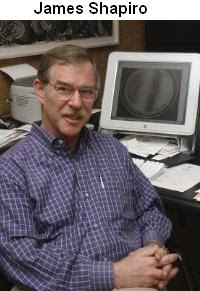The Lawrence Berkeley National Laboratory employs a number of scientists who work on genes and gene expression. Here's part of a press release published two days ago [For Normal Heart Function, Look Beyond the Genes: Loss of noncoding elements of genome results in heart abnormalities, finds Berkeley Lab study]. It demonstrates that the workers at this National Laboratory don't understand anything about mammalian genomes.
The only other possibility is that the person who wrote the press release doesn't understand molecular biology1 and the scientists who work there just don't care what their institution publishes.Researchers have shown that when parts of a genome known as enhancers are missing, the heart works abnormally, a finding that bolsters the importance of DNA segments once considered “junk” because they do not code for specific proteins.Regular readers of this blog know that ...
- No knowledgeable scientist ever said that all noncoding DNA was junk.
- We've known about regulatory sequences for half a century. We've known about enhancers—just another kind of regulatory sequence—for thirty-five years. Nobody ever thought they were junk. Nobody ever thought they were unimportant.
When scientists sequenced the human genome, they discovered that less than 5 percent of our DNA were genes that actually coded for protein sequences. The biological functions of the noncoding portions of the genome were unclear.At some point this flagrant misrepresentation of facts must be stopped. It's hurting science.
Over the past fifteen years, however, there has been a growing appreciation for the importance of these noncoding regions, thanks in large part to the efforts of individual labs and, more recently, large international efforts such as the Encyclopedia of DNA Elements (ENCODE) project.
What became clear from this work is that there are many elements of the genome, including enhancers, that are involved in regulating gene expression, even though they do not encode for proteins directly.
How can you believe anything in the press release once you read this? Do you think this represents the views of the scientists who published the paper? Is so, shame on them. If not, shame on the Lawrence Berkeley National Laboratory.
1. I sent her a link to this post.








